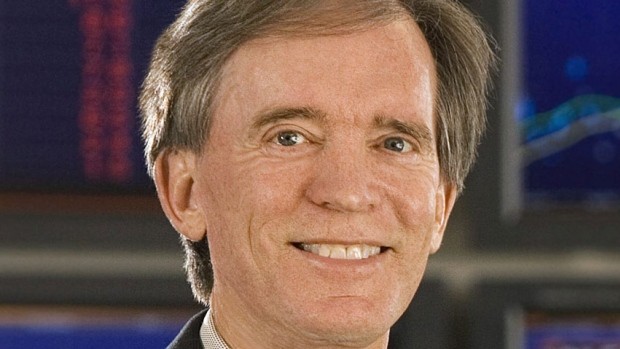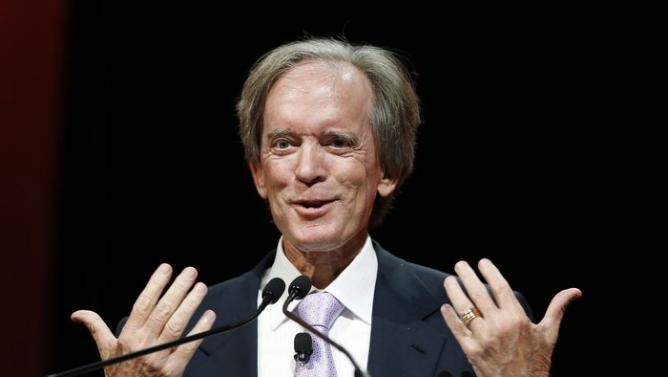Pimco Total Return uffers 13th month of outflows
Post on: 19 Май, 2015 No Comment

Brent Lewin | Bloomberg | Getty Images
A Pacific Investment Management Company advertisement
Bill Gross’ Pimco Total Return Fund. the world’s largest bond fund, posted $4.3 billion in net outflows in May, marking its 13th straight month of investor withdrawals despite achieving its best performance in four months, Morningstar data showed on Monday.
The fund has seen $59.6 billion in outflows since its record outflow streak began in May of last year, the data showed. The fund had $229 billion in assets at the end of last month, down from a peak of $292.9 billion in April of last year.
The outflows continued despite the fund’s 1.25 percent gain for the month, which beat 79 percent of peers and marked its best return since January, according to preliminary Morningstar data. That said, the Pimco Total Return fund is up just 3.32 percent for the year and is trailing 78 percent of its peers.
Analysts have said that outflows began last year on weak performance, which led the fund to decline 1.9 percent for the year, marking its worst performance in nearly two decades. Manager Gross’ public falling-out with former heir-apparent Mohamed El-Erian, who shared the co-chief investment officer title, also exacerbated investor unease.
Last week, Pimco said it had rehired Paul McCulley, who was previously a portfolio manager and the bond giant’s top analyst of the U.S. Federal Reserve’s policies, in the latest management change.
Gross, co-founder of Newport Beach, California-based Pimco and dubbed the market’s Bond King, said in a statement last week that McCulley will be an important contributor to our investment process.
The Pimco Total Return Fund delivered strong performance in May ahead of 79 percent of peer funds as the bond market sided with Pimco’s ‘New Neutral’ view that policy rates will stay lower for longer, a spokesman for Pimco said.
We continue to see opportunity in bonds as a portfolio diversifier and as a way to generate the kind of long-term outperformance that our clients have come to expect from Total Return and all of Pimco’s strategies.
Pimco, a unit of European financial services company Allianz,had $1.94 trillion in assets as of March 31, according to the firm’s website.
Boosted by bond rally
The Pimco Total Return Fund’s performance last month slightly beat the benchmark Barclays U.S. Aggregate bond index’s return of about 1.14 percent. The fund likely benefited from a rally in bond prices on weak U.S. economic data and signs that the Federal Reserve would keep rates low for longer, said Todd Rosenbluth, director of mutual fund research at S&P Capital IQ.
Gross has touted short-dated bonds in recent months on the view that the Fed would keep rates low for longer. Gross has said that while current Fed participants believe the central bank’s long-term neutral interest rate is 4 percent, Pimco believes 2 percent is closer to the mark.

Since longer-dated Treasuries rallied more than shorter-dated Treasuries notes in May, however, the fund likely surpassed peers in its security selection, said Rosenbluth.
It actually seems like they’ve made good security selection, he said. The Barclays 5-7 year U.S. Treasury index rose 1.30 percent in May, while the Barclays 25 plus-year U.S. Treasury index rose 3.05 percent.
The DoubleLine Total Return Bond Fund, a competitor to the Pimco Total Return Fund run by Jeffrey Gundlach, rose 1.13 percent last month, beating 55 percent of its peers, the preliminary Morningstar data showed.
Los Angeles-based DoubleLine said Monday that it had about $666 million of net inflows into its open-ended funds for May, the fourth consecutive month of new cash for the firm. The firm’s flagship DoubleLine Total Return Bond Fund had about $502 million inflows for the month, according to DoubleLine.
DoubleLine Capital, where Gundlach is chief investment officer and chief executive officer, said the firm had about $1.6 billion inflows into its open-ended funds year-to-date.
Investors realized earlier this year that the bond market sell-off was overdone, and pension funds and insurers saw the increase in bond yields as an opportunity to shift money out of stocks into bonds, which were factors that caused a resumption of inflows into bond portfolios, said Ronald Redell, president of DoubleLine Funds.
The various fixed income teams at DoubleLine have done a good job managing actively through the vagaries of credit and interest-rate risks, Redell said.
So we along with other active bond managers are receiving our share of investment flows into fixed income.














